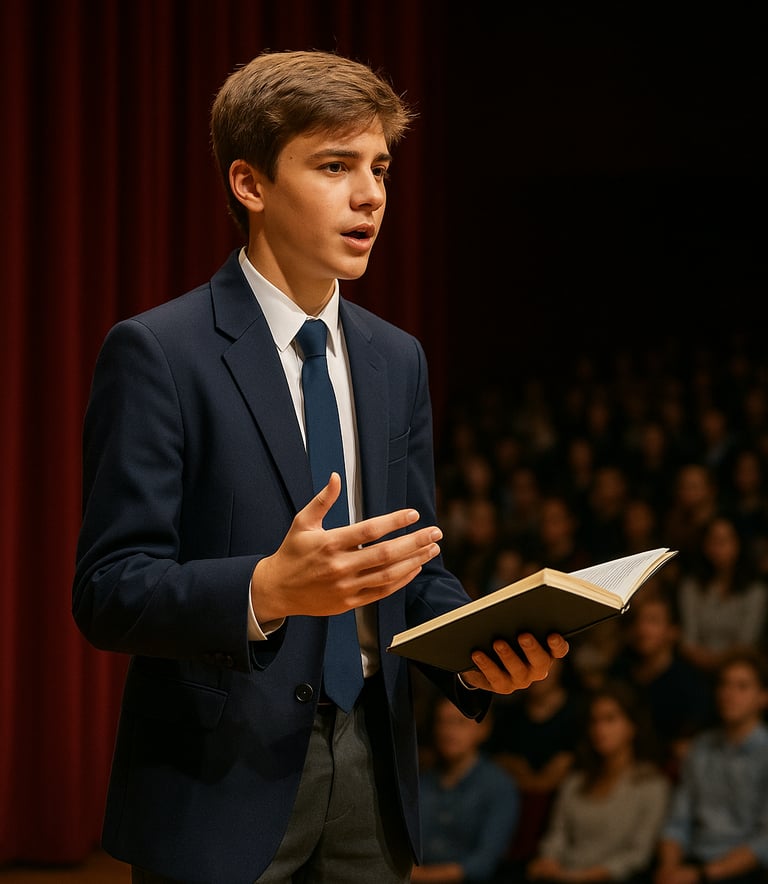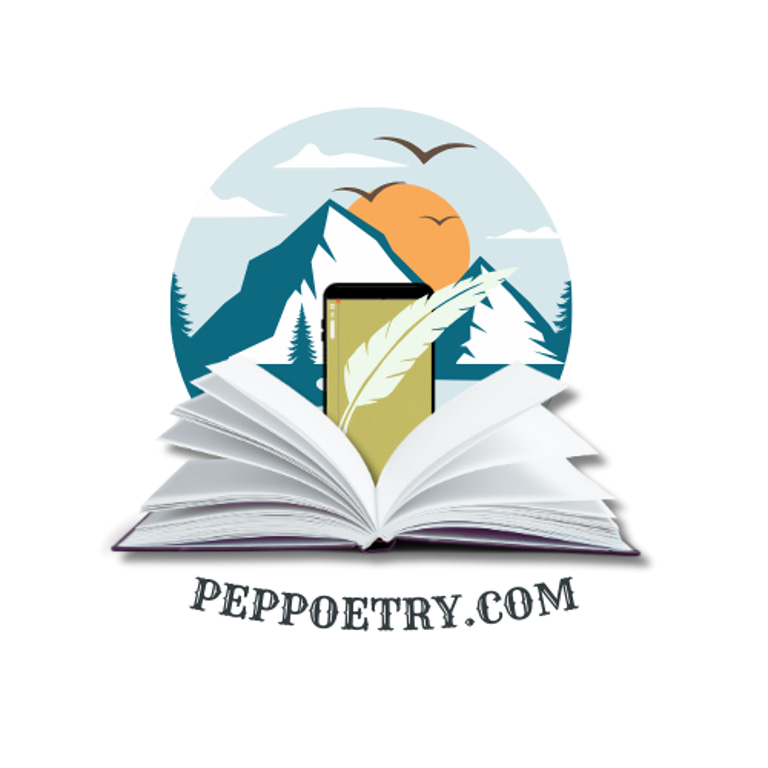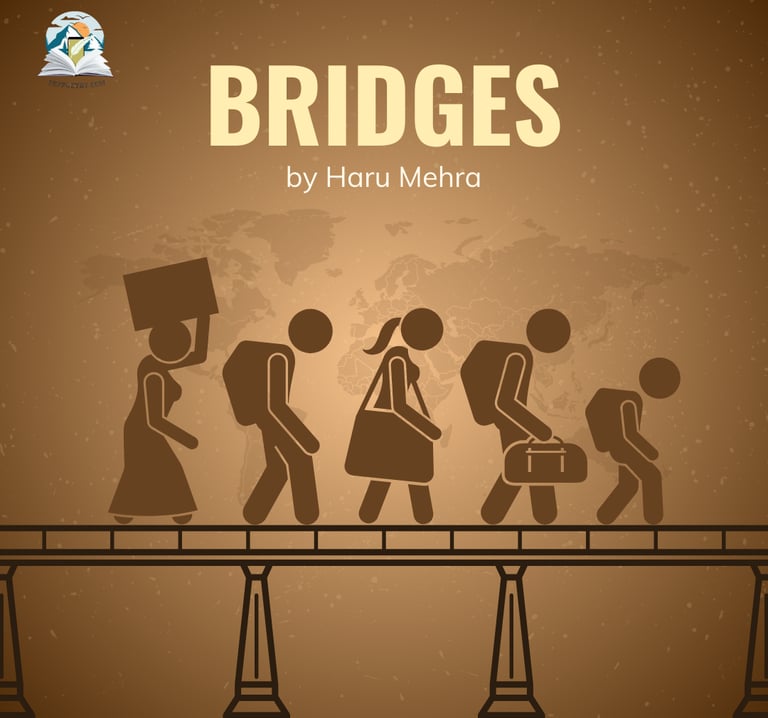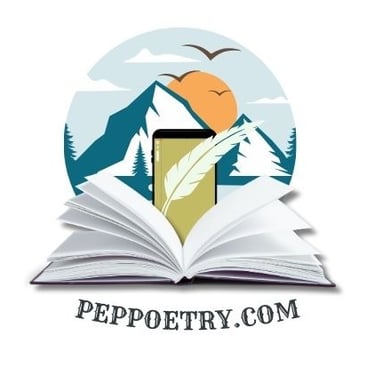Pep Poetry: Where Learning Comes Alive
Discover how Pep Poetry blends rhythm, action, and emotion to create a powerful new way of learning in the age of AI. From classrooms to a global paradigm shift, explore how rhymes can inspire creativity, confidence, and joyful education worldwide.

Pep Poetry: How Rhymes and Action Can Transform Learning in an AI World
Introduction: A Different Way of Learning
The world is changing faster than ever. Artificial Intelligence is rewriting how we live, work, and communicate. And yet, one thing hasn’t changed: the way human beings learn best. At our core, we learn through rhythm, movement, story, and emotion. These are ancient human tools—older than books, older than classrooms.
That’s where Pep Poetry comes in. It is more than just a verse, more than a rhyme. It is the art of blending action, rhythm, and meaning into learning. It is what I discovered as a student, refined as a teacher, and now see as a key to inspiring billions in an AI-driven world.
Let me give you one example.


The French Numbers Poem
When I was experimenting with teaching foreign languages, I wrote this playful piece mixing French and English:
Un deux trois – French numbers ah ha,
Quatre cinq six – click click cheese,
Sept huit neuf – for me nothing is tough,
Dix, onze, douze – watch my bright shoes,
Treize, quatorze, quinze – I like rock, rap & jazz!
At first glance, it seems like a silly classroom rhyme. But look deeper: it’s a memory device, a performance tool, and a motivational spark all at once.
The rhyme makes the French numbers stick.
The action (say “click click cheese” while pretending to take a photo) reinforces recall.
The playfulness connects with students emotionally.
The mix of French and English removes the fear of “foreignness.”
Students don’t just study the numbers. They live them.
Why Rhymes and Action Work
Science tells us that we remember best when multiple senses are engaged. This is called multisensory learning. When a student hears, speaks, and acts out a concept, it moves from short-term memory into long-term memory far more easily.
Rhythm and Rhyme: Our brains are wired to remember patterns. That’s why you can recall childhood songs decades later.
Action: Movement activates muscle memory. Linking a gesture to a concept strengthens recall.
Emotion: Playfulness lowers stress. When you’re having fun, your brain is more receptive to new input.
So a line like “Quatre cinq six – click click cheese” is not just a phrase. It is a whole-body, whole-mind learning moment.
From Classrooms to a Paradigm Shift
Now imagine this principle not just in one classroom, but across the world.
For centuries, education has been dominated by rote learning, memorization, and standardized testing. Students cram, regurgitate, and forget. But Pep Poetry introduces a shift: learning as performance, learning as play, learning as story.
In an AI-first world, this matters more than ever. Machines can store facts, translate instantly, and even solve problems. What they cannot do is feel, connect, and inspire. That is uniquely human.
Pep Poetry trains students not only to learn facts faster, but also to build the creativity, confidence, and emotional intelligence that no algorithm can replace.
Pep Poetry and AI: Not Opponents, But Partners
Some might say: “Why teach students French numbers this way, when AI can just translate everything for them?”
The answer is simple: AI can translate words, but it cannot translate experience.
Pep Poetry doesn’t compete with AI. It complements it. Here’s how:
AI handles the repetition. Practice apps, pronunciation tools, and adaptive quizzes give students endless support.
Pep Poetry brings the spark. It makes the lesson joyful, memorable, and human.
Together, they scale. Imagine a student in India, a child in France, and a teenager in Brazil all learning French numbers through the same Pep Poem, acted out in their own style, shared on TikTok or YouTube. AI distributes it, but the human spirit makes it stick.
This is not just a teaching trick. It’s a paradigm shift.
From Classrooms to a Paradigm Shift
Now imagine this principle not just in one classroom, but across the world.
For centuries, education has been dominated by rote learning, memorization, and standardized testing. Students cram, regurgitate, and forget. But Pep Poetry introduces a shift: learning as performance, learning as play, learning as story.
In an AI-first world, this matters more than ever. Machines can store facts, translate instantly, and even solve problems. What they cannot do is feel, connect, and inspire. That is uniquely human.
Pep Poetry trains students not only to learn facts faster, but also to build the creativity, confidence, and emotional intelligence that no algorithm can replace.
Pep Poetry and AI: Not Opponents, But Partners
Some might say: “Why teach students French numbers this way, when AI can just translate everything for them?”
The answer is simple: AI can translate words, but it cannot translate experience.
Pep Poetry doesn’t compete with AI. It complements it. Here’s how:
AI handles the repetition. Practice apps, pronunciation tools, and adaptive quizzes give students endless support.
Pep Poetry brings the spark. It makes the lesson joyful, memorable, and human.
Together, they scale. Imagine a student in India, a child in France, and a teenager in Brazil all learning French numbers through the same Pep Poem, acted out in their own style, shared on TikTok or YouTube. AI distributes it, but the human spirit makes it stick.
This is not just a teaching trick. It’s a paradigm shift.
Why This Can Motivate Billions
Think of a world where every subject—math, science, history, even life skills—could be taught through Pep Poetry.
Math: Multiplication tables turned into rap battles.
Science: Physics laws acted out through rhythm and gestures.
History: Dates remembered as rhyming sagas.
Languages: Grammar made into chants and dances.
Billions of learners, from children in remote villages to adults in corporate boardrooms, could rediscover the joy of learning. Instead of fearing new knowledge, they would welcome it as a performance, a play, a pep talk for their own minds.
And in a time when stress, anxiety, and burnout dominate student life, this approach is not just educational—it is healing.
The Journey: From School Poems to Bridges
When I was in school, my poetry was about dreams: a world without bombs, where people were kind, where peace was possible.
“The dream of a world comes to my mind,
Where people are friendly and kind.
There are no guns and bombs,
Only mankind runs through the heart of billions.”
That was my youthful vision of a better world.
Today, my poems have evolved, like my recent piece Bridges:
Step on the bridge, your goal is in sight,
Cross the horizon, walk toward the light.
But don’t burn the bridge that brought you here,
Your past gave strength, your lessons steer.
Each bridge you cross, each step you take,
Builds the life you are meant to make.
So honor the old, yet move forward,
Your faithful trails will lift you upward.
Both the early dream and the later reflection come from the same root: words + action + meaning. That is Pep Poetry. And if it can carry me through decades, it can carry billions through their own journeys.
Case Study: The Classroom That Laughed and Learned
I remember a particular day when I introduced the French numbers poem. At first, the students giggled. They thought it was silly to shout “click click cheese” in the middle of class. But within minutes, they were laughing, moving, repeating. By the end of the week, they remembered all the numbers up to quinze without effort.
A month later, I tested them casually. They still remembered. Some had even created their own rhymes for higher numbers. That’s the power of ownership—when students are given joy, they create joy.
The Future of Pep Poetry
With platforms like YouTube, Instagram, and PepPoetry.com, the reach of this idea is limitless. A single poem, performed once, can ripple out to millions across languages and borders. AI tools can translate, dub, and distribute—but the heartbeat of it remains human.
Imagine a global library of Pep Poems:
French verbs sung as lullabies.
Chemistry formulas as dance routines.
Leadership lessons as motivational rhymes.
Every learner, no matter where they live, could find themselves in those words and actions.
Conclusion: The Paradigm Shift We Need
In a world dominated by machines, Pep Poetry reminds us of what makes us human: creativity, play, and connection. It shows us that learning doesn’t have to be dull or mechanical. It can be rhythmic, memorable, joyful.
The French numbers poem is just one example. But it carries a promise: that with Pep Poetry, billions can find not only knowledge, but motivation. They can bridge their past and future, their struggles and dreams, through the simple power of rhyme and action.
The paradigm shift is here. The question is: are we ready to rhyme, act, and learn our way into it?
Haru MEHRA
Creator and Founder,






